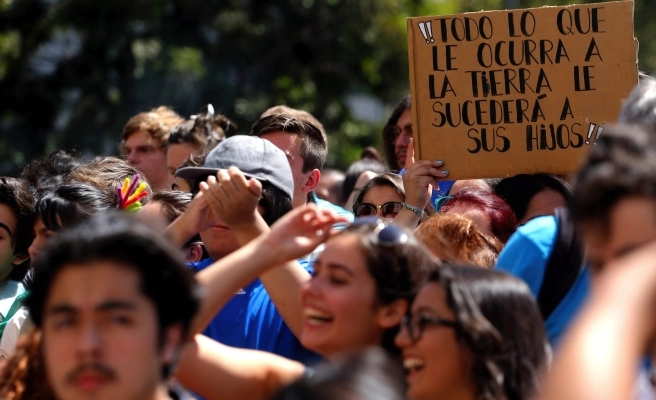In the face of an agenda that includes issues such as inequality, poverty, citizen insecurity, corruption, or the erosion of confidence in democratic institutions, climate change emerges as an omnipresent and silent threat that requires effective policies. A recent survey conducted by the WIN International network of independent consulting firms in nearly forty countries has shed light on a diverse picture, revealing both consensus and discrepancies in the global perception of climate change. Globally, a large majority — 83% — consider global warming a serious threat to humanity. Comparative analysis with previous editions of the study shows that consensus on the seriousness of the problem remains solid in most countries, although with notable exceptions in the United States and Poland, where significant segments of the population do not perceive this issue with the same urgency. In Latin America, concern about global warming exceeds the world average, with countries such as Mexico, Argentina, Ecuador, Brazil, Peru, and Paraguay showing particularly high levels of alarm.
Diversity of opinion
However, the division of opinion arises when considering the capacity for action in the face of climate change. Globally, society is divided between those who believe there is still time to act against climate change and those who think it is already too late. This polarization of opinions reveals a growing pessimism, fueled by the perception of inaction by governments. Criticism of governments is a common denominator almost everywhere in the world, with more than half of the global population expressing dissatisfaction with the measures taken to protect the environment in their countries.
Asia Pacific is the only region of the world where favorable views predominate. In contrast, in other parts of the world, including Latin America, perceptions are critical of government action. In our region, Brazil is the country with the best evaluation and Paraguay is the most critical. A study conducted in Argentina by Voices and UADE revealed that citizens criticized, in addition to government actions, companies, and society as a whole. This reflects a more complex scenario that involves multiple actors and implies new forms of governance with higher degrees of cooperation and interaction between the state and non-state actors.
The science-fiction satire film “Don’t Look Up”, released in 2021, is a powerful metaphor for contemporary denialism. In it, the imminent threat of a comet is denied and trivialized by society and by leaders themselves. The climate crisis often faces a similar response of skepticism and apathy. Several world leaders have been noted for their skepticism or denial of the problem. One of the most notable was former U.S. President Donald Trump, who questioned the validity of climate change on human grounds and took actions such as removing references to climate change from the White House website. This phenomenon is not only limited to political leaders but has also been observed in movements and media in many countries.
What does society think about the causes of climate change?
An international study in 45 countries has yielded enlightening results on global perceptions of the causes. According to the study, seven out of ten people in the world attribute the origin of climate change to human actions, showing widespread awareness of the impact of our activities on the environment. In contrast, only a quarter of the world’s population believes that climate change is mainly due to natural cycles.
Particularly in Latin America, the region stands out for its firm belief in the human responsibility behind climate change. Mexico leads this perception, closely followed by Argentina, Colombia, Peru, and Ecuador, all of which have figures that exceed the global average. On the other hand, another WIN global survey on Climate change & Sustainability conducted in 2021 highlights that the vast majority of the world’s citizens consider that phenomena such as fires, floods, and hurricanes have increased due to global warming, evidencing the perception that the effects of climate change are already perceptible. These findings reflect a broad awareness among the world’s population and, in particular, in Latin America, of the importance of human actions in the acceleration of climate change.
On the scientific side, the consensus on the anthropogenic causes of global warming is almost unanimous. If scientists and society agree, this is a direct call to action, with stronger commitments and concrete actions by governments and institutions. Combating climate change demands a global effort that combines effective policies, education and collective action.
The UN stresses that education and awareness-raising are essential for fair and effective climate responses. Despite varying perceptions and resources, a unanimous commitment at all levels is crucial. As we have seen in Latin America, recognition of global warming as a severe threat and understanding of its anthropogenic origins are in the majority. However, this awareness is not uniformly translated into decisive governmental action, leading to widespread criticism.
The climate challenge must have its place on the political agenda, despite pressing problems such as poverty, inequality, and insecurity, which also require urgent attention. Attention must also be paid to the fact that Latin America may be one of the areas most affected by climate change, especially in the two most vulnerable subregions, Central America and the Caribbean.
In this context, governments, civil society, and the private sector must intensify their collaboration. The synergy between collective awareness and concrete political action is emerging as one of the keys to effectively addressing environmental challenges, aiming to mitigate their adverse effects and promote sustainable development.
*Translated by Janaína Ruviaro da Silva from the original in Spanish.











